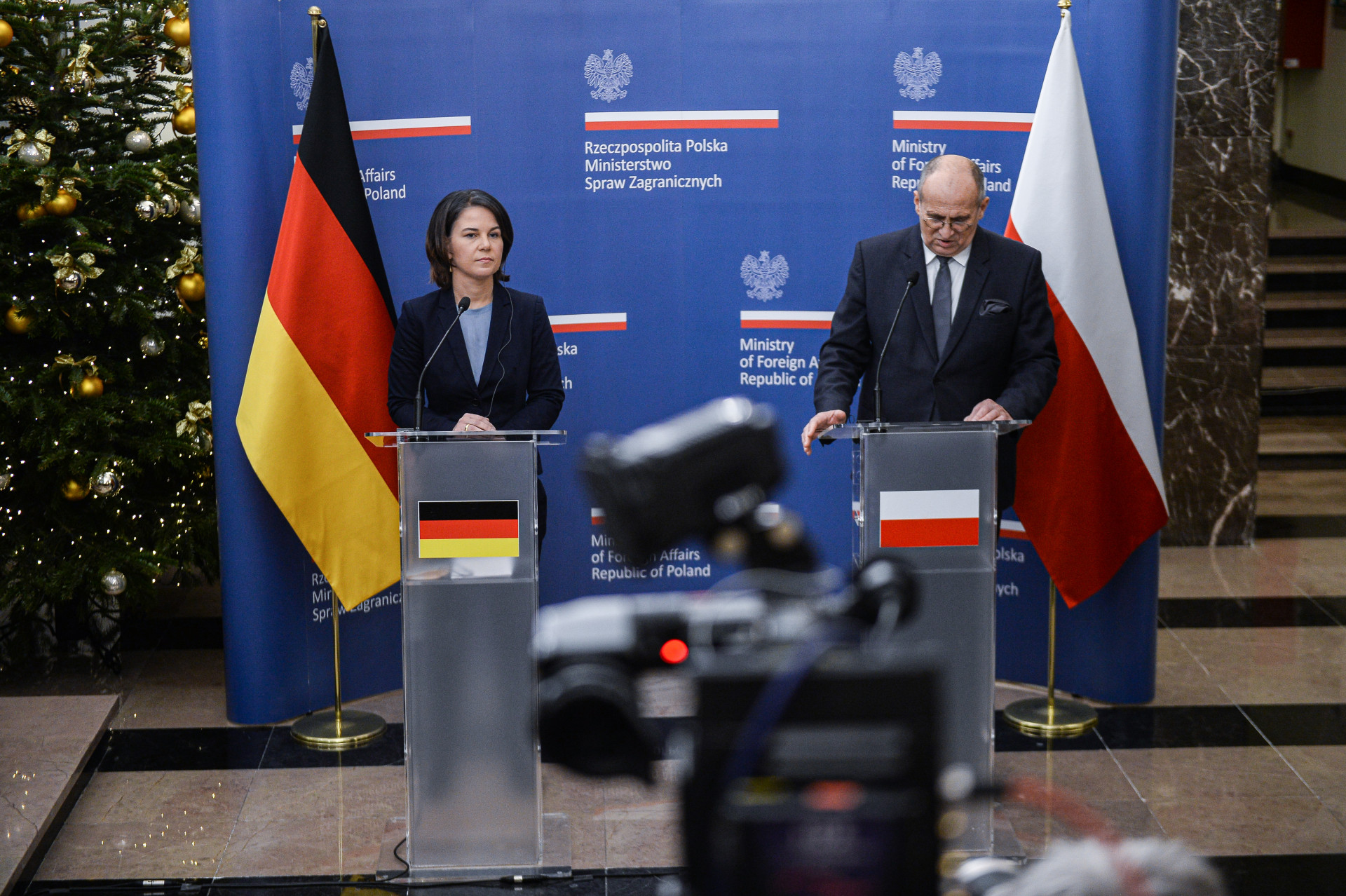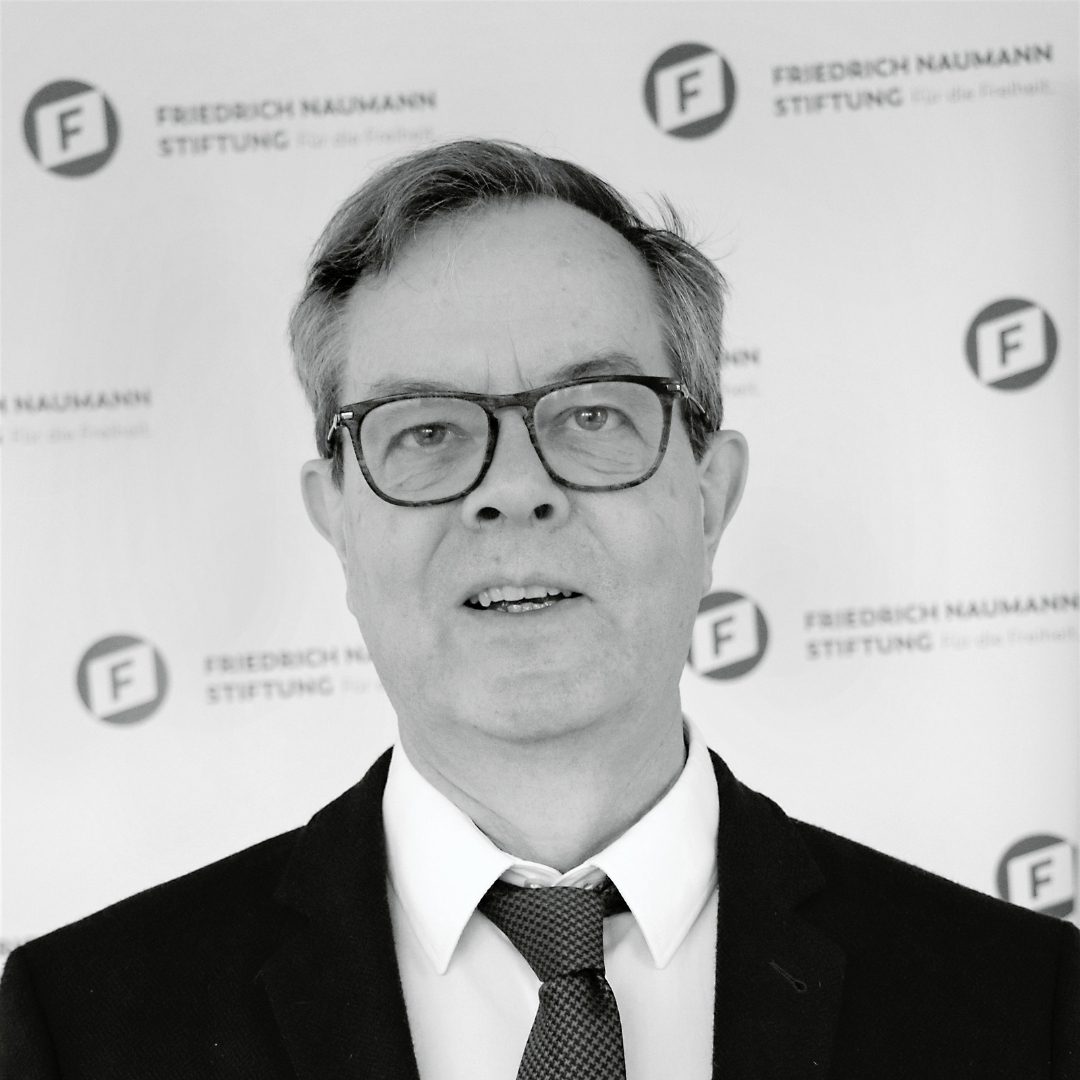WAR IN EUROPE
Poland’s homework
Warsaw was quick to recognise the danger posed by Putin. Nevertheless, the country urgently needs to change its political direction.
TEXT: DETMAR DOERING

WAR IN EUROPE
Poland’s homework
Warsaw was quick to recognise the danger posed by Putin. Nevertheless, the country urgently needs to change its political direction.
TEXT: DETMAR DOERING
Poland’s government was quicker than Germany to recognise the danger posed by Russian ruler Vladimir Putin and his superpower ambitions. And the Polish government acted quickly. However, a domestic policy that is questionable with respect to the rule of law and a confrontation with the EU and Germany have greatly weakened the impact of this action. Since the invasion of Ukraine, there has been a certain rapprochement between Polish and German foreign policy. Now more of that is needed from both sides.
As early as 2014, former Polish President Bronisław Komorowski exclaimed during a state visit to Ukraine: “I have never heard that there is an arms embargo against Ukraine!” In its assessment of the threat posed by Russia, his centrist government hardly differed from the national populist government of the Law and Justice Party (PiS), in office since 2015. And despite the extreme polarisation that has characterised Polish politics for years, there is still a very broad consensus here between the otherwise hostile camps.
Poland has therefore long helped Ukraine with weapons, know-how and logistics.
Weapons and know-how
Poland has therefore long helped Ukraine with weapons, know-how and logistics. The country was well prepared for its current role as a central hub for arms deliveries after the Russian invasion began. The fact that Germany wanted to contribute just 5,000 helmets to the military equipment of the Ukrainian armed forces was met with a mixture of indignation and contempt in Poland. There were also early warnings about the geostrategically fatal effects of the Nordstream 2 gas pipeline and the realisation that German foreign policy towards Putin was shaped by wishful thinking over realism.
However, the picture of the current Polish government's Ukraine/Russia policy is less rosy when set in the larger context. The realistic assessment of Russia was repeatedly contrasted with ideologically motivated attacks against Germany and the EU. The PiS largely reversed the consistently pro-European and pro-Western orientation of all previous governments since 1989. In particular, PiS leader (and government organ grinder) Jarosław Kaczyński repeatedly stooped to claiming that Germany was planning a “Fourth Reich” and using the EU as an instrument to incapacitate the Polish nation state. The insinuation that Poland must keep away from Putin's tyranny just as much as from the Federal Republic of Germany prevented a constructive dialogue from the outset, in which Poland's well-founded concerns could have been listened to.
The US is highly popular in Poland
In addition, the Polish government's numerous systematic violations of elementary legal principles protected by the EU Charter of Fundamental Rights (independence of the judiciary, freedom of the press) damaged the basis of trust in relations with the western EU partner countries. Worse still, the problems also affected the inner core of security policy itself. As in most central European countries, NATO and the US are highly valued by Poles as guarantors of security. In 2019, the Polish government threw itself into the arms of Donald Trump, who wanted to station an additional 1,000 soldiers in the country, and even went so far as to suggest naming the barracks “Fort Trump”. Poland let itself be used by the American president to sow division within NATO. The withdrawal of American troops from Germany weakened NATO in Europe and clearly violated proclaimed Polish security interests. Driven by a backward-looking ideology, Poland ultimately put its own interests at risk.
That is evidently history now. Shortly before the Russian invasion, the German government's hesitation to supply Ukraine with weapons and, if necessary, to shut down Nordstream 2, had once again caused great indignation across the political spectrum in Poland. But the German about-turn after the invasion of Ukraine was hailed as a “Copernican revolution” (as the “Rzeczpospolita” newspaper, which is by no means close to the government, wrote) and the beginning of a new era.
Without a common set of values, there can be no common security in the long term.
“Copernican revolution“
German-Polish relations are currently improving significantly. Of course, this is the current agenda (not only) in terms of security policy; but hopefully, it is not merely due, and therefore limited to, the current drama. For Russia's war against Ukraine will have long-term effects: a new cold war era is dawning against insane plans for a great empire, where no one knows how far they will go. The idea of a community of values that is also a community of defence will regain importance after suffering great damage during the transatlantic discord under former US President Trump.
German policy in particular, must take Poland's security interests seriously. At the same time, the country's concerns in other areas, related to security policy, must be eased too. One such area is energy policy, which is seen across party lines in Poland as a threat to the country's economy in already difficult times. This also applies to the EU's “Green Deal”. However, first and foremost, the Polish government must do its homework. The anti-German policy must end for good. It has now ultimately failed and been refuted by reality. At the same time, domestic policy must once again be oriented towards the principles of the rule of law that apply in the EU. Without a common set of values, there can be no common security in the long term. At present, however, there are only tentative signs of this. At least, the disciplinary chamber, the government could use to get rid of judges it dislikes in a way that is not strictly within the rule of law, could be a thing of the past soon. It will be a hard road for a government that has long moved in the wrong direction. But Putin's misdeeds may increase the pressure to change course.

Detmar Doering works in Prague as a project manager for the Friedrich Naumann Foundation for Freedom in the Central European and Baltic Countries.

Detmar Doering works in Prague as a project manager for the Friedrich Naumann Foundation for Freedom in the Central European and Baltic Countries.
More articles
Karl-Heinz Paqué // A course correction for Germany
We need more investment in defence and a sensible energy transition. We also need a growth-oriented economic policy to finance it.
Wolfram Eilenberger // Russia’s work and Germany’s contribution
Putin‘s invasion of Ukraine has shaken German politics out of its naivety. How could the country so collectively succumb to such a dangerous misconception?
Susanne Spahn // Russian information weapons
The European Union has banned broadcasting by Russian state media. However, disinformation disseminated by RT DE is proving a great success in Germany, as the channel is still online.
